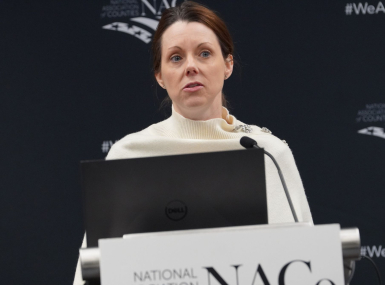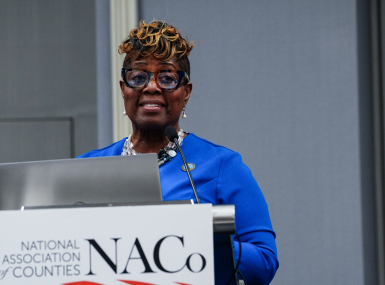Jail Reentry for People with Substance Use Disorders Part 1: Meeting Immediate Needs

Watch On-Demand
Click the video player below to watch the webinar on-demand. If you are having issues accessing the recording, please email nacomeetings@naco.org.
Counties are implementing thoughtful and robust strategies to address the distinctive needs of individuals with substance use disorders (SUD) who are returning to the community from jail. Nearly two-thirds of people sentenced to jail meet the criteria for drug use or dependence, and reentry from jail can be a pivotal point in the justice process; this is especially true in times of instability like the current COVID-19 pandemic. Counties are supporting people’s reentry through housing, employment and transportation as well as accessing treatment.
Join NACo for part one in a three-part series on supporting people with a substance use disorder leaving jail. Presenters will discuss strategies counties can use to partner with government agencies and service providers to share information and develop jail reentry strategies that encompass training and workforce development, housing obtainment, accessing transportation and connections to behavioral health treatment.
Speakers

Robert Deen

Chelsea McGill

Jocelyn Olsen

Glen Sayes
Watch Recording
Click here to watch the recording in a new window.
Support
This project was supported by Grant No. 2017-AR-BX-K003 awarded to the Institute for Intergovernmental Research (IIR) by the Bureau of Justice Assistance. The Bureau of Justice Assistance is a component of the Department of Justice’s Office of Justice Programs, which also includes the Bureau of Justice Statistics, the National Institute of Justice, the Office of Juvenile Justice and Delinquency Prevention, the Office for Victims of Crime, and the SMART Office. Points of view or opinions in this document are those of the author and do not necessarily represent the official position or policies of IIR or of the U.S Department of Justice.







